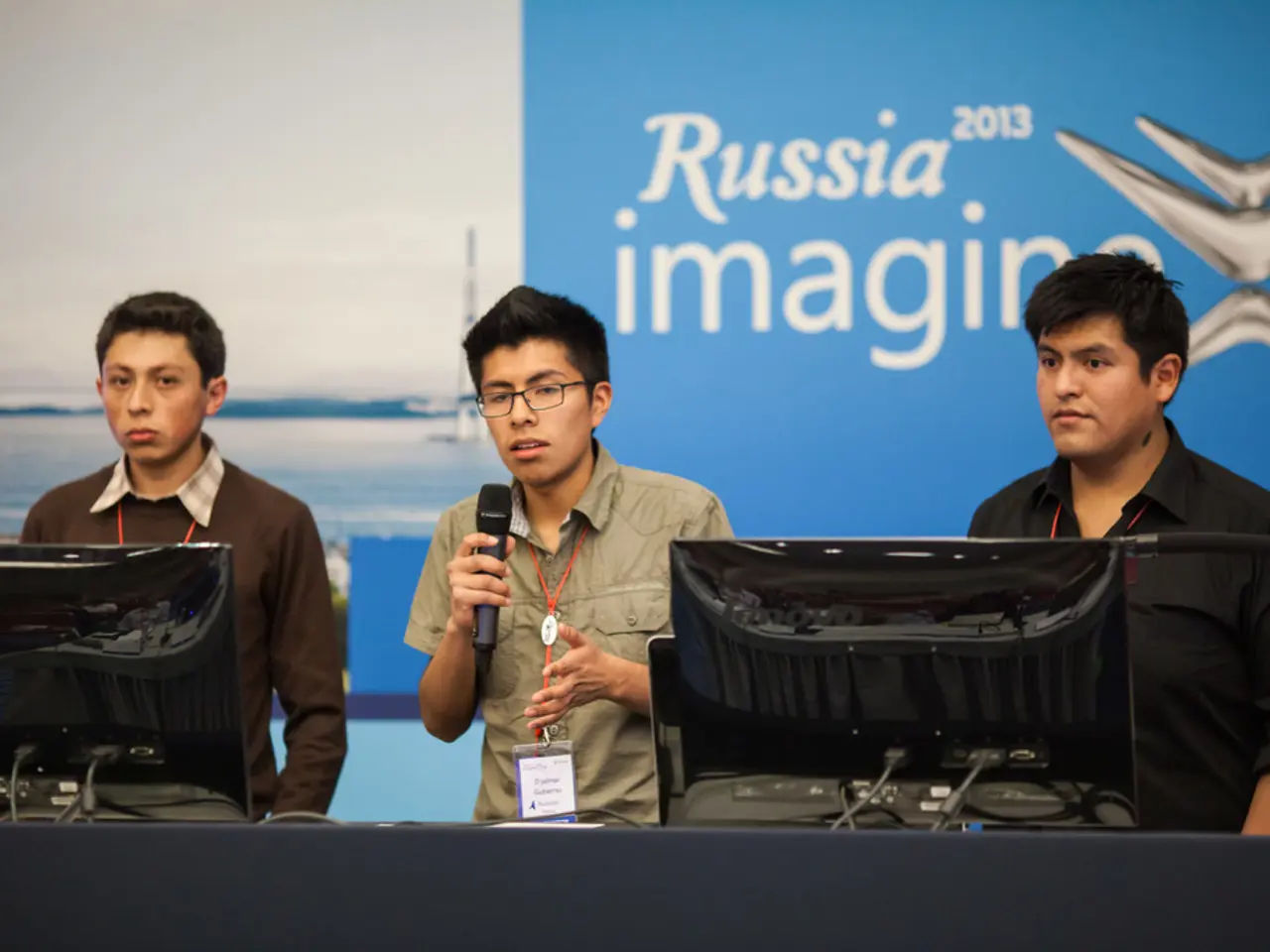Kenya and Microsoft Contemplate Joint Venture Regarding AI and Digital Advancement
Kenya and Microsoft Discuss AI Integration and Digital Transformation
In a significant development, Kenya's Cabinet Secretary for Information, Communication, and the Digital Economy, Hon. William Kabogo, recently held a meeting with a delegation from Microsoft. The discussions, which took place at the Ministry Headquarters, focused on exploring potential areas of collaboration and the integration of Artificial Intelligence (AI) into government operations.
The meeting, attended by key officials from both parties, including Principal Secretaries Stephen Isaboke and Eng. John Tanui, and Aarti Borkar, Corporate Vice President for Security, Customer Success & Incident Response from Microsoft, delved into various aspects of digital transformation.
AI was proposed as a means to improve service delivery, policymaking, and overall resilience. Specifically, the government aims to automate routine processes such as exams to enhance transparency and efficiency in service delivery. In policymaking, data-driven insights and AI-influenced governance frameworks are expected to increase efficiency and responsiveness.
The discussions also touched upon the importance of strengthening the security of public infrastructure. Meanwhile, the integration of AI into government operations is a major topic of discussion, with the aim of building overall resilience by strengthening public sector skills, infrastructure, and adaptability to emerging technologies.
In addition to AI, the topics discussed included cybersecurity, digital hubs, and Data Governance & Compliance. The possibility of rolling out digital hubs across the country was also raised, although specific details were not provided. The emphasis on Data Governance & Compliance included promoting trusted cloud partnerships and sovereign control.
The meeting did not mention any specific outcomes or agreements. However, the discussions underscore Kenya's commitment to digital transformation and its ambition to become a continental leader in AI policy and application, aligned with regional digital transformation goals and inclusive economic development.
The meeting was led by Rashida Hodge, Corporate Vice President for Data and AI Customer Success from Microsoft. The discussions expanded beyond the initial focus areas, covering various aspects of digital initiatives, cybersecurity, public infrastructure, and citizen data.
Kenya's current plans for integrating AI into government operations are part of a comprehensive National AI Strategy (2025-2030) backed by a budget of $1.19 billion (Ksh.152 billion). Key initiatives include skilling 100,000 public servants on AI and establishing AI centers in Technical and Vocational Education and Training (TVET) institutions to automate exam setting and marking, improving assessment efficiency and credibility.
The government's AI agenda aims to improve service delivery, enhance policymaking, build overall resilience, and develop human capital by integrating AI education and skills training across educational levels and public service. These efforts position Kenya well for the future, preparing its workforce for the demands of the digital age and fostering innovation while maintaining regulatory balance.
[1] Ministry of ICT, Innovation and Youth Affairs. (n.d.). Kenya's National AI Strategy (2025-2030). Retrieved from https://www.ict.go.ke/files/2020/08/Kenya-National-AI-Strategy-2025-2030.pdf [2] Ministry of Education. (2021). Kenya's Education Sector Transformation 3.0. Retrieved from https://www.education.go.ke/wp-content/uploads/2021/07/EST3.0-Comprehensive-Document.pdf [3] Ministry of Education. (2022). Kenya's Competency-Based Curriculum Implementation Guide. Retrieved from https://www.education.go.ke/wp-content/uploads/2022/07/CBC-Implementation-Guide-2022-2023.pdf [4] Ministry of ICT, Innovation and Youth Affairs. (2022). Kenya's National Digital Master Plan 2022-2032. Retrieved from https://www.ict.go.ke/files/2022/05/Kenya-National-Digital-Masterplan-2022-2032.pdf [5] United Nations Economic Commission for Africa. (2021). Africa's Digital Transformation Roadmap. Retrieved from https://www.uneca.org/sites/default/files/2021-06/Africa_Digital_Transformation_Roadmap_June_2021.pdf
[1] "The discussed integration of Artificial Intelligence (AI) into government operations aims to bolster cloud technology's security, ensuring the protection of sensitive data within the infrastructure."
[2] "Strengthening the security of public infrastructure is crucial, as AI-driven governance is expected to enhance efficiency and responsiveness in policymaking."
[3] "Part of Kenya's AI strategy involves the use of AI and artificial-intelligence-driven artificial intelligence (AI) education to develop human capital and foster innovation, maintaining a balance between regulation and progress."




